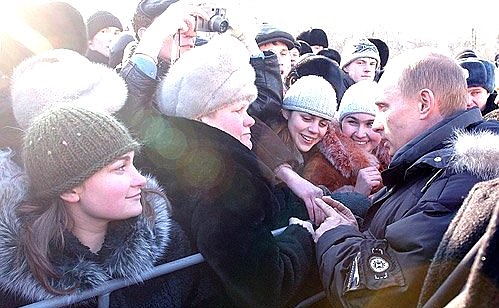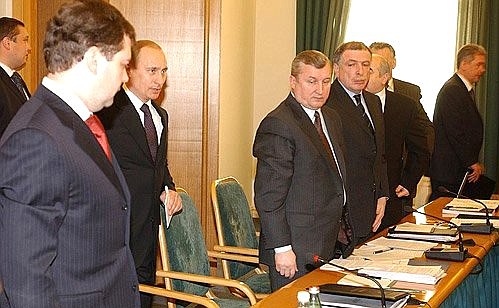Meetings were often held in the district—in particular, on natural gas extraction and the metal industry. However, there was no way to settle the problems of particular branches of the economy without clarity on the overall economic situation, Mr Putin said. The argument on whether Russian economic dependence on the oil and gas sector was good or bad was too abstract, he remarked. Effective channelling of natural resource profits to other economic fields was the main goal in the present situation. The Urals, for one, needed progress in engineering and metal processing.
The President noted that the year 2002 saw improvements in the district with its advance in the high technology markets, to which it offered competitive commodities. Industrial output grew in the Urals more rapidly than in the whole of Russia, and, though the district was still short of domestic investment, it was seeking effective ways to attract capital to its manufacturing industries, Mr Putin said.
There was, however, a major imbalance in the development of industry and the resource and energy base of certain parts of the Urals. There were social tensions and environmental problems in the district. The sphere of housing and public utilities was especially alarming. The situation could not but arouse the concern of the federal and local authorities.
Mr Putin saw consistent strengthening of the Urals economy through a latter-day inter-regional market infrastructure as the way to solve many problems. The goal demanded an all-round approach to modernising transport and reasonable adaptation of Urals engineering companies to the market situation.
The governors of all regions of the Urals Federal District and several Cabinet members, among them Alexander Rumyantsev, Nuclear Power Minister, and Ilya Klebanov, Science, Industry and Technology Minister, attended the meeting.

